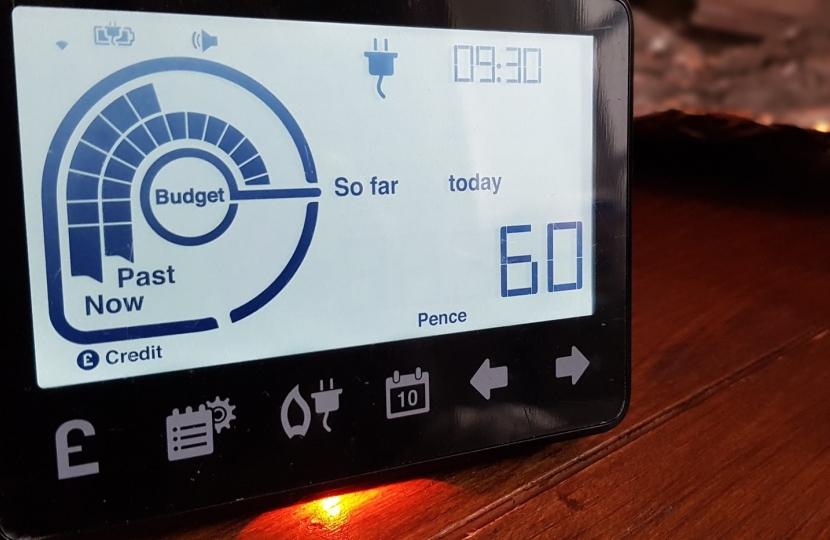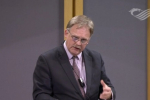
The Cross Party Group on Fuel Poverty at the time worked hard to establish the Fuel Poverty Coalition, the Fuel Poverty Charter - and to secure agreement from the Welsh Government to revise its Fuel Poverty Strategy.
And in 2010 the Welsh Government set out its new strategy to eradicate fuel poverty in Wales in all households by 2018.
My first priority now is to secure a new Fuel Poverty Strategy and Action Plan, which – as the NEA Fuel Poverty Monitor 2018 states - “should include ambitious targets to improve
homes to a minimum energy efficiency standard, and be developed in collaboration with stakeholders”.
As I said in the Assembly on the 14th February last year:
“the most recent statistics – show that almost 300,000 households in Wales are living in fuel poverty, unable to afford to adequately heat their home, or in crippling debt with their energy supplier.
“It is clear therefore that the Welsh Government Strategy has not worked”.
“The objectives of the 2010 Fuel Poverty Strategy are still relevant – it is still vital that we reduce the impact of fuel poverty on households and work to eradicate fuel poverty, it is still vital that we create green jobs and business opportunities, and it is still vital that we reduce energy inefficiency in the domestic sector”.
“However, many of the mechanisms and measures contained within the 2010 Fuel Poverty Strategy are out of date or no longer applicable”.
“Although the Nest and Arbed schemes are helping, these alone are not sufficient to tackle the problem.
The time is right for the Welsh Government to refresh its Fuel Poverty Strategy, with a clear programme and time scales, credible evidence base, and an ambitious new target rooted in delivery rather than being a hostage to energy price movements”.
A revised strategy with ambitious objectives is now vital.
Better insulation, smarter lighting and appliances, and smarter heating systems could reduce the emission of a household by 0.6 tonnes of CO2 per year, and will save the householder an average of £184 a year.
AND, whilst we need new targets to improve homes to a minimum energy efficiency standard, we must almost heed Calor’s warning that the variability of EPC ratings means that a building’s performance against national energy policy objectives (such as fuel poverty targets) can change over time – without any alterations being made to the property.
As NEA Cymru stated 2 months ago “whilst we know that energy inefficiency is a contributing factor to fuel poverty, this alone will not solve the problem. We also need a new strategy outlining a much more joined-up approach by Welsh Government, local authorities, housing associations, advice and health services, as well as other public and voluntary organisations in society."
Linked to this, my next priority is the development of a Cold Weather Plan for Wales, as in England.
Following the 2010 Strategy, excess Winter Deaths in Wales were 1250 in 2011-12.
However, ONS data released last November showed that the number of Excess Winter Deaths in Wales had reached 3400 in 2017/18 – with increases in all English Regions and Wales, but Wales having the highest regional index.
Treating people who are made ill by living in a cold damp home costs NHS Wales an estimated £67 million annually.
A cold home can worsen arthritic conditions and rheumatic conditions, and increase propensity to falls.
GP consultations for respiratory tract infections can increase by up to 19% for every one degree drop in temperature below 5°C.
Individuals living in homes with bedroom temperatures of 15°C are also 50% more likely to suffer from mental health problems than those living with temperatures of 21°C.
With current demand on the Welsh NHS higher than ever before, more needs to be done to tackle cold homes.
Last November, the Minister told the Cross Party Group that the Welsh Government will be developing a Cold Weather Plan in conjunction with Public Health Wales.
The importance of involving the wider sector was emphasised to her.
A crisis fund and adoption in Wales of the NICE Guideline and Quality Standard on Cold-related ill health and Excess Winter Deaths will also be key to this.
My third and related priority is to place fuel poverty at the heart of action to tackle social deprivation - working with local authorities, third sector organisations and existing energy efficiency schemes to develop local Affordable Warmth Schemes.
I send you all warm wishes for Fuel Poverty Awareness Day tomorrow.
